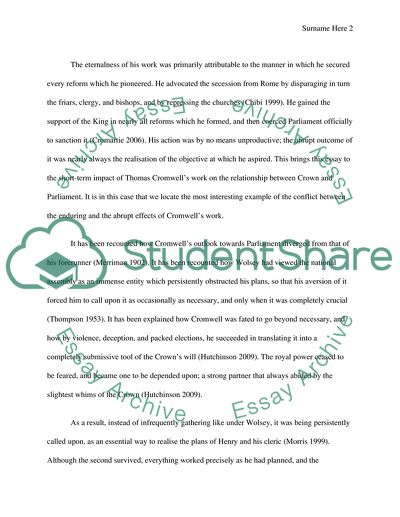Cite this document
(The Short-Term Impact of the Work of Thomas Cromwell Coursework, n.d.)
The Short-Term Impact of the Work of Thomas Cromwell Coursework. Retrieved from https://studentshare.org/social-science/1744131-what-in-your-view-was-the-short-term-impact-of-the-work-of-thomas-cromwell-on-the-relations-between-crown-and-parliament
The Short-Term Impact of the Work of Thomas Cromwell Coursework. Retrieved from https://studentshare.org/social-science/1744131-what-in-your-view-was-the-short-term-impact-of-the-work-of-thomas-cromwell-on-the-relations-between-crown-and-parliament
(The Short-Term Impact of the Work of Thomas Cromwell Coursework)
The Short-Term Impact of the Work of Thomas Cromwell Coursework. https://studentshare.org/social-science/1744131-what-in-your-view-was-the-short-term-impact-of-the-work-of-thomas-cromwell-on-the-relations-between-crown-and-parliament.
The Short-Term Impact of the Work of Thomas Cromwell Coursework. https://studentshare.org/social-science/1744131-what-in-your-view-was-the-short-term-impact-of-the-work-of-thomas-cromwell-on-the-relations-between-crown-and-parliament.
“The Short-Term Impact of the Work of Thomas Cromwell Coursework”, n.d. https://studentshare.org/social-science/1744131-what-in-your-view-was-the-short-term-impact-of-the-work-of-thomas-cromwell-on-the-relations-between-crown-and-parliament.


